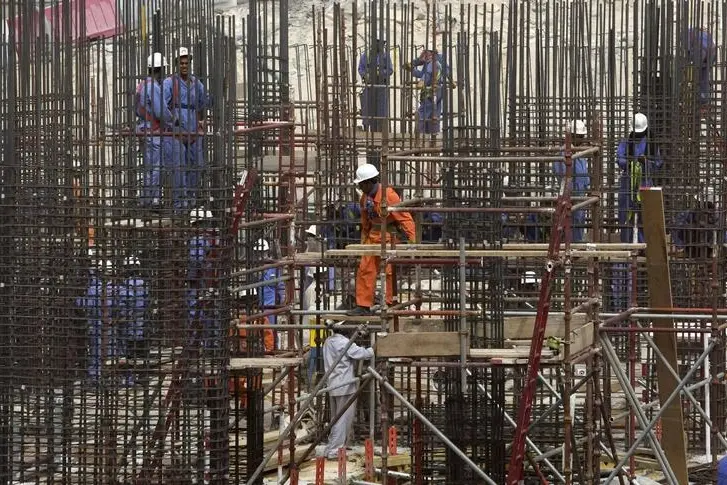PHOTO
Real estate projects where construction has been suspended or stalled owing to various factors present an attractive opportunity to smaller developers and investors in Dubai. To facilitate this arrangement, the Dubai Real Estate Investment Promotion and Management Centre has established the Tanmia scheme, aimed at reviving stalled projects.
While owners can approach the centre to include their distressed project under the Tanmia scheme, investors can register their interest in funding or acquiring a distressed project. This is also a win-win situation for old buyers, who can choose to either cash out with a settlement or stay on in the project.
"In any significant construction market, there will always be an element of distress. We are not seeing anything overly significant, certainly not like in 2008 to 2010. That being said, we are aware of certain investors/developers whose business model will be based around distressed acquisition because of the opportunity to purchase well below market value and realise greater yield in the medium to long term. Such acquisition strategy should only be conducted by experienced investors because of the enhanced risk and legal considerations that need to be addressed," says Sachin Kerur, head of Middle East region at law firm Pinsent Masons.
A lot of the smaller developers in Dubai have acquired such incomplete projects since they can be acquired at a significant discount. One such developer is Global Capital Partners which has just relaunched a G+5 residential building in Jumeirah Village Circle.
"Distressed projects are done through Tanmia. They involve clearance from the Dubai Land Department, Real Estate Regulatory Authority, Dubai Courts as well as the master developer, and is a rigorous process put into place to ensure that rights of the investors have been protected," explains Sameer Lakhani, managing director, Global Capital Partners.
However, none of the larger developers have moved to revive stalled projects. Smaller developers have revived more than 60 projects in the last 4 to 5 years, according to industry sources.
"This is because there is a substantial price discount that can be achieved [anywhere between 20 to 60 per cent] over prevailing alternatives, giving smaller developers a leg up in an otherwise extremely competitive market place. Private sector developers' survival rate has been less than 8 per cent between the first and the second cycle. This indicates that the ecosystem has been difficult for these developers, further reinforcing the need to revive some of these stalled projects," suggests Lakhani.
Another developer that has acquired a distressed project and looking out for a second one is Quice Dubai Holdings.
"A reasonably high percentage of investors have decided to stay on with our project, certainly more than we had thought. The issue to watch out for is the amount of liability that is finally settled with the investors because that impacts the feasibility of the project. When projects become bigger, the level of complexity [legal and logistical] increases and that has been the biggest deterrent for the larger developers," observes Furqan Hussain. MD/CEO of Quice Dubai Holdings.
The majority of unfinished developments left over from previous real estate cycles have now been completed in Dubai.
"Where distressed investments are being made, developers are looking to benefit from previously sunken costs without paying significantly more for the opportunity than the land itself. We have also seen joint ventures being negotiated, where the developer brings their development expertise and sometimes equity, taking a significant return on their equity for a short-term role in progressing the project to completion," says Matthew Green, head of research and consulting, CBRE Middle East.
The developer/investor should do proper due diligence before acquiring a distressed project to mitigate risks.
"Ensure that owners are properly registered, land interests have been fully secured, establish that a project has not actually been cancelled by Rera, enquire whether land is encumbered by any third-party interests and undertake a full financial due diligence in respect to the feasibility of the project. What is often not done sufficiently is checking contracts entered into with designers, contractors and master developers to ensure that they can be effectively assigned to new owners. Also, new investors will probably be looking for a new regime of warrantees and indemnities to protect their acquisition. A distressed acquisition strategy will need to be analysed on a case-by-case basis," points out Kerur.
Copyright © 2017 Khaleej Times. All Rights Reserved. Provided by SyndiGate Media Inc. (Syndigate.info).





















